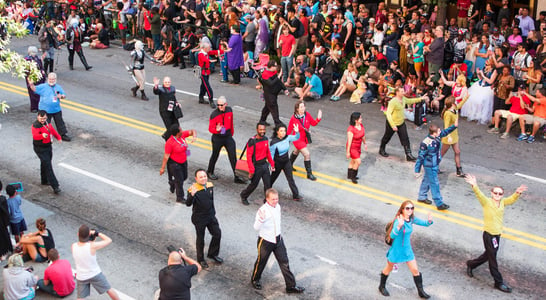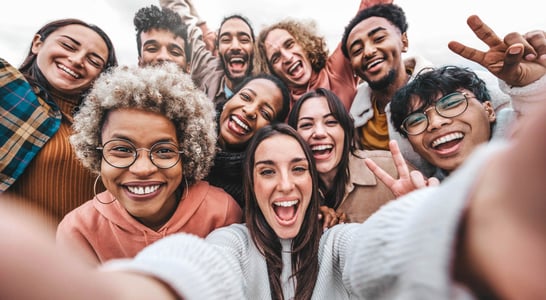
Pardon Day
Be polite and make sure you say “pardon” and “excuse me” when necessary, but more importantly examine the grudges you hold and see who you need to pardon.
The weak can never forgive. Forgiveness is the attribute of the strong.
Mahatma Gandhi
Forgiveness, the process by which an offended party chooses to change the way they feel about someone who has committed the offense against them.
It bears a distinct difference from the idea of condoning (where one does not see the offense as wrong, and therefor not needing forgiveness), excusing the action (where you place the blame for the action on someone else entirely), giving pardon (cleared by a legal representative), forgetting (where the action no longer exists in memory in any real or present way), or the act of reconciliation (where the relationship is restored without the action strictly being forgiven).
How to Celebrate Pardon Day
There are a number of good ways to celebrate International Pardon Day, the simplest being to make sure you use ‘Excuse Me’ and ‘Pardon Me’ whenever you feel it appropriate.
You need to get by someone, a simple ‘pardon me’ will serve to politely ask them to clear the way. Did you pass gas, or bump into someone when trying to get past them? ‘Excuse me’ is a good step towards showing you’re truly contrite.
“Forgive your enemies, but never forget their names.”
John F. Kennedy
Another, perhaps more difficult way to celebrate is to take the time to examine the grudges you carry with you on a day to day basis. To think them over and determine if it’s truly worth carrying that anger and resentment forward.
Take International Pardon Day to set them, and yourself, free from the toxic weight you’re carrying. You can do it via email, in person, over coffee, or you can write them a letter.
If they’ve passed on, don’t let that stand in your way, write a letter with everything you’d like to say in it, and then burn it to set it free.
History of Pardon Day
On the 8th of September back in 1974, President Gerald Ford presented a rather controversial Presidential Proclamation.
This proclamation pardoned Richard M. Nixon of all wrongdoing that was related to that most famous of American scandals, the Watergate affair. Richard made very clear that he felt he had committed grievous wrong-doings against the people of the United States and the seat they had granted him.
While you are unlikely to be in a position to grant a presidential pardon, what you can do is be more forgiving on International Pardon Day.
If you are holding a grudge against those who have committed some offense against you, Pardon Day grants you a valid reason to examine your feelings and the time that has passed, and to let that resentment and anger go.
The truth
Steve Maraboliis, unless you let go, unless you forgive yourself, unless you forgive the situation, unless you realize that the situation is over, you cannot move forward.
What is known about forgiveness is that it is an act that brings happiness to those who give it, one can release the hold on the negative emotions they’re harboring in themselves, but they cannot release the associated guilt for the person who committed the act.
As a result, forgiveness is for the one giving it, rather than the one who committed the transgression. Research has shown that those who have chosen to give up resentments live longer lives as a result to an improvement in their cardiovascular and nervous systems.
Pardon Day FAQs
What is the origin of the term “pardon,” and how has its meaning shifted over time?
The word “pardon” comes from the Latin perdonare, meaning “to give completely.”
Initially, it referred to religious absolution in medieval Europe. Over time, it evolved into a legal concept, symbolizing mercy and justice.
This linguistic shift reflects broader changes in how societies view forgiveness and authority.
Are there any famous literary works that explore the theme of pardons?
Shakespeare’s The Tempest delves into forgiveness, with Prospero pardoning his enemies.
Similarly, Victor Hugo’s Les Misérables portrays Jean Valjean’s redemption through acts of mercy. These works highlight the transformative power of pardons in storytelling and human experience.
Has anyone ever refused a presidential pardon?
Yes! In 1830, George Wilson, a convicted robber, declined a pardon from President Andrew Jackson.
The Supreme Court ruled that a pardon must be accepted to be valid. Wilson chose execution instead. More recently, former Sheriff Joe Arpaio initially hesitated before accepting Trump’s 2017 pardon.
What are some unusual pardon requests in history?
In 1924, a man in the U.S. requested a pardon for his dog, convicted of stealing a chicken.
Similarly, in 2017, a group sought a posthumous pardon for a goat allegedly executed for witchcraft in 1642. These quirky requests reveal the lighter side of pardon traditions.
How do pardons intersect with art and music?
John Lennon’s 1973 song “Mind Games” explores forgiveness and reconciliation.
Similarly, Banksy’s artwork The Son of a Migrant from Syria critiques societal failures to pardon and welcome refugees. Art often serves as a medium to reflect on the complexities of forgiveness.
What role do pardons play in post-conflict reconciliation?
After the Rwandan genocide, community courts called Gacaca used pardons to reintegrate offenders into society.
Similarly, South Africa’s Truth and Reconciliation Commission granted amnesty to promote healing. These examples show how pardons can rebuild fractured communities.
Are there any scientific studies on the impact of pardons on mental health?
Research shows that receiving a pardon can alleviate feelings of guilt and improve self-esteem.
Conversely, granting pardons can reduce anger and promote emotional well-being. These findings underscore the psychological benefits of forgiveness.
How do pardons differ from amnesty, and why does it matter?
A pardon forgives a specific individual after conviction, while amnesty erases charges for groups, often pre-trial.
For example, post-war amnesties aim to restore peace, whereas pardons address individual injustices. Understanding this distinction clarifies their roles in justice systems.
What are some surprising cultural rituals involving forgiveness?
In Fiji, the matanigasau ceremony involves presenting a whale’s tooth to seek forgiveness.
In the Philippines, the pagbabati ritual uses coconut leaves to symbolize reconciliation. These rituals highlight the creative ways cultures embody forgiveness.
How have pardons been used in space exploration history?
In 1971, Apollo 15 astronauts left a memorial on the moon honoring fallen space explorers, symbolizing a universal pardon for human errors.
This act reflects how forgiveness transcends earthly boundaries and unites humanity in shared endeavors.
Also on ...
View all holidaysActors’ Day
Take part in a local theater production, perhaps by auditioning or simply supporting local actors. Give some appreciation to this difficult but entertaining skill.
Star Trek Day
Binge Star Trek: The Original Series, or whichever series you like best, to honor the progressive cultural touchstone created by Gene Roddenberry in the 1960s.
World Physical Therapy Day
Physical therapy can help everything from minor pains to serious injuries, and understanding how the body works can help you keep yours healthy and comfortable.
We think you may also like...
National No Selfies Day
Put down the camera and take a look around, capture memories in your mind, not just on your phone. Enjoy the moment!
National New Friends Day
In life's vibrant tapestry, weaving connections opens doors to fresh horizons, and sprinkles joy into everyday moments.
Share a Smile Day
Spreading happiness with a simple, friendly expression, lighting up someone's day with warmth and positivity.








